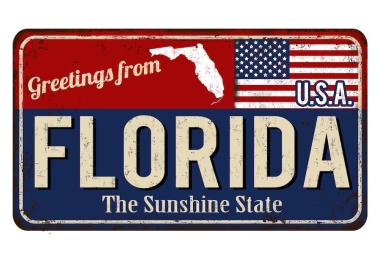It’s no secret that Britain’s wine buyers have been fighting hard to keep their businesses profitable in recent times. The 2016 Brexit referendum result, and the ensuing market turmoil, has led to a protracted period of uncertainty for the wine trade at a time when firms are already coping with escalating overheads and competition from the supermarket/online sphere. Currency devaluation hit some companies hard; among the significant casualties was major drinks group Conviviality, which went into administration in 2018, selling its retail division to grocery wholesaler Bestway for £7.25m ($9.2m).
Majestic Wine, Britain’s biggest specialist wine retailer, announced in March 2019 that it would close a number of stores and focus on its online and international business. The brand is now considering selling all of its British shops and becoming an online-only operation. Its final decision will be announced in June.
Yet despite the well-publicised decline of the British high street, it’s not all doom and gloom for the wine trade. Online retailer The Wine Society announced in May that its annual turnover had reached more than £100m for the first time in the firm’s history. Head wine buyer Pierre Mansour, and his colleagues across the trade, are fighting hard to keep their offerings relevant and exciting, while embracing new trends such as the rise of premium wines sold in the can format. Greencroft Bottling, sister firm of Lanchester Wines, has invested in a large-scale canning line, due to become fully operational from September 2019.
However, the industry’s favourite phrase in 2019 remains “consumers are drinking less but better”. With margins at the bottom continually being squeezed, Britain’s wine buyers are tasked with successfully transmitting the added value of trading up, while championing responsibility.
Pierpaolo Petrassi MW, head of wine buying, Waitrose
Mezcal, canned, Greek, and alcohol-free wines are among the drink trends set to dominate the industry this year, according to Waitrose head of wine buying Pierpaolo Petrassi MW. In May, the supermarket will begin selling the first Mirabeau premium rosé packaged in a 250ml can, “Prêt-à-Porter, rosé to go.” By judiciously predicting and reacting to key consumer trends, Petrassi’s ten-year career at Waitrose has been defined by major critical and commercial success. He now presides over one of the most exciting wine ranges of any UK multiple retailer; the upmarket supermarket massively overtrades in wine compared to its share of the grocery market, and that is not simply down to the demographic it attracts.
Pierre Mansour, head of buying, The Wine Society
Under Mansour’s stewardship, The Wine Society has gone from strength to strength, reaching record levels of turnover in 2019. Successfully capitalising on the UK’s growing e-commerce sector, Mansour oversees a range which doesn’t simply pander to consumer clichés of Prosecco and Sauvignon Blanc. “Our approach to buying is quite simple: quality comes before anything. The Society’s status as a mutual organisation, owned by its customers [members], means we can put wine quality before profit or growth,” says Mansour. This approach has paid dividends for the firm, as membership and profits continue to grow.
Mike James, wine buying director, Aldi
Mike James is the driving force behind a highly successful supermarket wine range. His secret? Targeting a broad swathe of the population – his astute buying choices appeal to the middle classes, delighted bargain hunters, families, singles and indeed wine critics. Range rationalisation has been key to his shake-up of Aldi’s wine portfolio, in addition to promoting emerging categories. He has a strong track record of making shrewd decisions, exhibiting flair and dynamism in his buying choices and helping to shape the nation’s drinking habits.
Jason Godley, BWS director, Tesco
Is there a more high-pressured job in the UK’s wine buying industry? Replacing the previous BWS director Rob Cooke earlier this year, Godley has worked for Tesco for more than 20 years in various roles. His monumental task is continuing Cooke’s good work in clawing back lost market share in the alcohol category, while maintaining profit margins on the back of difficult trading conditions and rising inflation. He has inherited a very experienced wine team at an important crossroads in the Tesco story.
Simon Cairns, BWS category trading manager, The Co-op
Since 2014, Cairns has elevated the Co-op’s wine range from the hum-drum to the impressive, focusing on a diversified and trend-conscious portfolio that includes an emphasis on small formats and emerging categories such as vegan wines. He continues to push the boundaries while focusing on the Co-op’s core strengths. Convenience is the supermarket’s major USP and Cairns understands that his wine range needs to reflect that.
Robin Copestick, managing director, Freixenet-Copestick
Following the merger of sparkling wine giant Freixenet with Copestick Murray in January 2019, Robin Copestick has signalled his intention to grow the business into the UK’s largest supplier of sparkling wine by volume and value. Ambitious, but then Copestick’s introduction of the I Heart range was a masterstroke, perfectly timed to coincide with the rise in demand for premium but affordable still and sparkling wine brands that boasted easy-to-decipher labels. Flexibility remains a hallmark of I Heart’s success, as the model gives buyers the flexibility to source from wherever necessary, and thus a head-start when it comes to price and supply issues. Countries and suppliers sometimes change as often as once a year. He also intends to move into spirits.
Elizabeth Newman, BWS category manager, Sainsbury’s
A leading light in supermarket wine buying, Elizabeth Newman has more than eight years of experience working for the upmarket retailer. Her savvy buying resulted in a 26% surge in sales of the chain’s Taste the Difference wines in 2017. Today Sainsbury’s competes with Waitrose for the title of UK’s leading premium supermarket wine range.
Drew Tiffin, BWS category director, Asda
Drew Tiffin was promoted to the top BWS job at Asda more than two years ago, entrusted with the formidable task of reclaiming lost market share taken by rival discounters Aldi and Lidl. He has made impressive strides since his appointment, tackling Asda’s long-standing problem with style duplication by introducing more genuine choice to the range, resulting in a cull of some 200 wines. A tighter, more concise offering has meant sacrificing a quarter of the Asda wine portfolio, but has brought people back to the retailer.
Andrew Baker, wine buying director, Virgin Wines
For 18 years Andrew Baker has worked with Virgin Wines and today his overriding focus is on collaborative production and long-term partnerships with wine producers. “This is the best way to deliver value and quality now,” he says. “Twenty years ago, with markets in surplus, it was a different story. There was much opportunism and short-termism. At Virgin Wines we adopted the collaborative approach very early, which is now vitally important to us.” Following a management buyout in 2013, Virgin Wines has gone from strength to strength.
David Gleave MW, managing director, Liberty Wines
Despite the difficult trading environment, Liberty Wines enjoyed strong, double-digit revenue growth in 2018. This is surely a testament to the skill and prowess of its managing director and, of course, his talented team. Operating for more than 20 years, Liberty has been transformed from a small enterprise with a list of 40 producers into one of the UK’s leading agency all-rounders, with a portfolio of more than 250 producers and a customer base of independents across the on- and off-trades who share its own ethos. However, Gleave is no staunch traditionalist – Liberty made its first foray into sake in 2018.
Ray O’Connor, wine director, Naked Wines
Founded in 2008 by South African investor Rowan Gormley, Naked Wines is undoubtedly one of the most important e-commerce wine companies operating today. With a global reach that includes the US and Australia, the firm’s revenue and profitability continues to grow – in 2015, Naked Wines was acquired by Majestic Wine, which has subsequently decided to scale down the bricks-and-mortar side of the business and focus on online retailing. Its keenly priced and marketed range – sold at self-described wholesale prices – is put together by Ray O’Connor, a man who knows how to sell to a wide cohort of UK consumers. “The approach to buying at Naked Wines is intensely customer-led – we put them at the heart of every decision and they ultimately shape our range,” explains O’Connor. “For each purchase, whether a new listing or a stalwart range, we ask a simple question: ‘Would you buy this wine again? Yes or no?’ This result drives the percentage rating of the wine and steers us in what works and what doesn’t – almost a bit like Netflix.”








